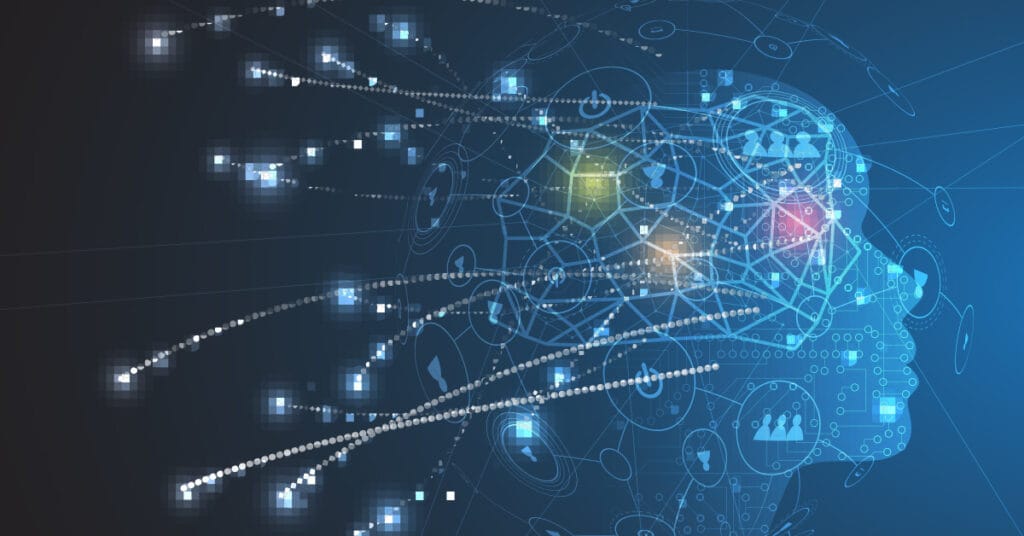Premier League Introduces Semi-Automated Offside Technology
The Premier League is set to implement semi-automated offside technology starting April 12 during Match Round 32 fixtures. This system aims to enhance the accuracy and speed of offside decisions by automating key aspects of the process, utilizing optical player tracking and generating virtual graphics. Previously employed in tournaments like the FIFA World Cup and UEFA Champions League, this technology is expected to improve the in-stadium and broadcast experience for fans.

Advancements in Artificial Intelligence and Quantum Computing
Artificial intelligence (AI) continues to revolutionize various industries, with significant progress in areas such as drug discovery, code optimization, and climate modeling. Companies like OpenAI, Google DeepMind, and Anthropic are enhancing AI systems to improve efficiency and transparency. The development of AI agents capable of handling complex tasks with minimal supervision is gaining traction, promising to transform both routine and complex operations.
In the realm of quantum computing, tech giants including Google, Microsoft, and Amazon have unveiled new prototypes promising breakthroughs in error correction and scalability. Google’s recent announcement of its quantum chip, Willow, marks a significant step toward practical quantum computers, with potential applications in big data analytics, drug discovery, and complex system simulations. Despite these advancements, experts note that functional and useful quantum computers may still be years away due to ongoing technical challenges.
Emerging Technologies from CES 2025
The Consumer Electronics Show (CES) 2025 showcased a plethora of innovative technologies set to impact daily life. Notable highlights include:
- Holographic Windshield Displays: Hyundai Mobis introduced a windshield display that projects key information, such as navigation and safety alerts, in a panoramic and immersive manner, enhancing driver experience.
- AI-Powered Children’s Book Reader: An AI-driven device designed to assist children in reading by providing real-time feedback and interactive storytelling.
- Fridge That Can Cook: A revolutionary kitchen appliance capable of not only preserving food but also cooking meals, streamlining the cooking process.
These innovations underscore the rapid pace of technological advancement and its integration into everyday life.
Breakthroughs in Biotechnology and Renewable Energy
Biotechnology is making significant strides with the development of CRISPR-based gene-editing tools, offering potential cures for genetic diseases and advancements in agriculture. However, these developments also raise ethical considerations that require careful deliberation.
In the energy sector, the transition to renewable sources is accelerating. Innovations in green hydrogen production and energy storage technologies are poised to decarbonize industries and contribute to a sustainable future. The growth of solar and wind power, coupled with advancements in battery technology, is set to revolutionize energy consumption patterns.
These developments highlight the dynamic nature of technological innovation in 2025, with far-reaching implications across various sectors.
The pace of technological innovation is accelerating at an unprecedented rate, with breakthroughs in AI, quantum computing, biotechnology, and space exploration redefining what’s possible. Today, we bring you the most exciting and transformative advancements making waves across industries.
1. OpenAI Launches GPT-5: The Most Advanced AI Yet
OpenAI has officially unveiled GPT-5, its most powerful AI model to date. Unlike its predecessors, GPT-5 boasts near-human reasoning, real-time learning, and seamless multimodal integration—processing text, images, audio, and even video simultaneously. Early adopters report astonishing capabilities, from autonomous scientific research to personalized AI assistants that anticipate user needs.
2. Google Achieves “Quantum Supremacy 2.0” with Sycamore 3.0
Google’s latest quantum processor, Sycamore 3.0, has shattered records by solving a real-world optimization problem in seconds—a task that would take the fastest supercomputers 47 years. This milestone, dubbed “Quantum Supremacy 2.0,” proves quantum computing’s potential for drug discovery, cryptography, and climate modeling.
3. Neuralink’s First Human Patient Controls Devices with Thought
Elon Musk’s Neuralink has released groundbreaking results from its first human brain-chip implant trial. The patient, a paralyzed individual, can now type, browse the internet, and control smart devices using only their mind. The company claims future updates could restore mobility and even enhance cognitive abilities.
4. Apple’s Vision Pro 2 AR Glasses Leak Ahead of WWDC
Apple is set to unveil its next-generation Vision Pro 2 AR glasses at WWDC 2025, with leaked specs revealing 4K micro-OLED displays, advanced eye-tracking, and a sleeker, more affordable design. Unlike its predecessor, the new model focuses on enterprise applications, including remote surgery and 3D engineering design.
5. MIT’s SPARC Fusion Reactor Achieves Net Energy Gain
In a historic breakthrough, MIT and Commonwealth Fusion Systems have achieved sustained net energy gain in their SPARC tokamak reactor, bringing clean, limitless fusion energy closer to reality. If commercialized, this could end reliance on fossil fuels by the 2030s.
6. Tesla’s Fully Autonomous Robotaxis Hit the Streets
Tesla has begun real-world testing of its Gen-3 Robotaxis in 10 U.S. cities, operating without safety drivers for the first time. Early data shows 99.9% accident-free performance, with plans for a global rollout by 2026.
7. CRISPR 3.0 Enables Human Organ Regeneration
Scientists have upgraded CRISPR gene-editing to “CRISPR 3.0,” allowing precise regeneration of damaged organs in live animals. Human trials for liver and kidney repair are expected by 2026, potentially ending the need for organ transplants.
8. Samsung Unveils Glasses-Free 3D Holographic Displays
Samsung’s “Holomatrix” technology brings true holograms to consumer devices, enabling glasses-free 3D visuals for gaming, telemedicine, and virtual meetings. Mass production begins in late 2025.
9. NASA’s Nuclear-Powered Rocket Cuts Mars Travel to 45 Days
NASA and DARPA’s DRACO project has successfully tested a nuclear thermal propulsion (NTP) engine, reducing Mars travel time from 7 months to just 45 days. A crewed mission could launch by 2030.
10. Japan Breaks Internet Speed Record: 1 Petabit per Second
Researchers at Japan’s NICT have achieved 1 petabit per second (Pbps) over fiber optics—1 million times faster than gigabit internet. This could enable instant global data transfers and ultra-high-definition VR.
The Future Is Here
From AI that thinks like humans to fusion energy and brain-controlled devices, these breakthroughs are not just sci-fi fantasies—they’re happening now. The next decade will redefine how we live, work, and explore the universe.


